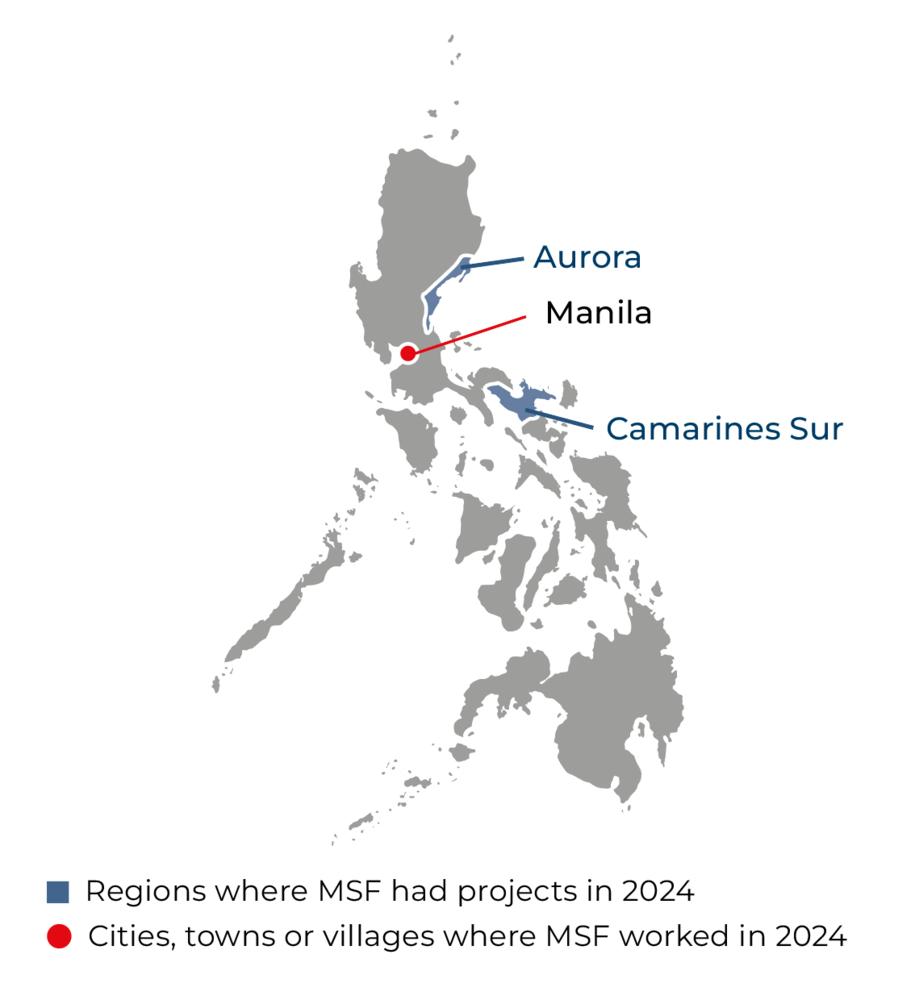
Philippines
Typhoon Kalmaegi (locally known as Tino) has ravaged at least eight regions across the Philippines, displacing approximately 400,000 people
Official figures (as of 12 November) report 213 deaths, 502 injuries, and 112 individuals still missing.
Médecins Sans Frontières (MSF) teams are currently on the ground in Cebu, delivering emergency response services.

Médecins Sans Frontières (MSF) is working to reduce the high prevalence of tuberculosis (TB) in the Philippines. In 2024, our teams also assisted communities affected by typhoons and flooding.
Our activities in 2024 —
outpatient consultations
people started on treatment for TB , including 21 for MDR-TB
Tuberculosis prevalence in the Philippines is among the highest in the world, and it is a leading cause of death in the country.
Throughout 2024, MSF continued to work in Tondo, a densely populated, impoverished area of the capital, Manila, focusing on active case detection. Our teams ran a mobile x-ray clinic equipped with an artificial intelligenceassisted diagnostic tool, facilitating rapid screening and early diagnosis.
The aim is to screen people, trace contact cases, and refer TB-positive patients to local health centres.

To improve treatment, patient adherence and outcomes, MSF organised community-based care, including home visits and follow-up. We also offered preventive TB treatment to close contacts of confirmed TB patients, especially children, who are at higher risk of developing severe forms of the disease.
Some patients diagnosed through our screening activities were unable to start or continue treatment, due to recurrent drug shortages or their inability to afford them. In August, to address this issue, MSF supported the Manila Health Department with a donation of TB drugs, while advocating for a sustainable procurement of medicines.
During the year, our teams also launched several emergency responses. On 14 September, a massive fire broke out in Manila, affecting over 2,000 families. Many people lost their homes and their personal belongings. In response, MSF donated medicines, supplies for wound care, such as bandages and antiseptic products, and oral rehydration salts.
The Philippines has long been recognised as one of the countries most at risk for extreme weather events. However, the 2024 storm season proved to be record-breaking, with six typhoons hitting the country within a 30-day period, starting in late October. In the aftermath of severe tropical storm Trami and super typhoon Man-yi, our teams quickly reached the worst-affected districts, to offer basic healthcare, distribute essential supplies, such as drinking water and hygiene kits, and monitor the risk of water-borne diseases.

